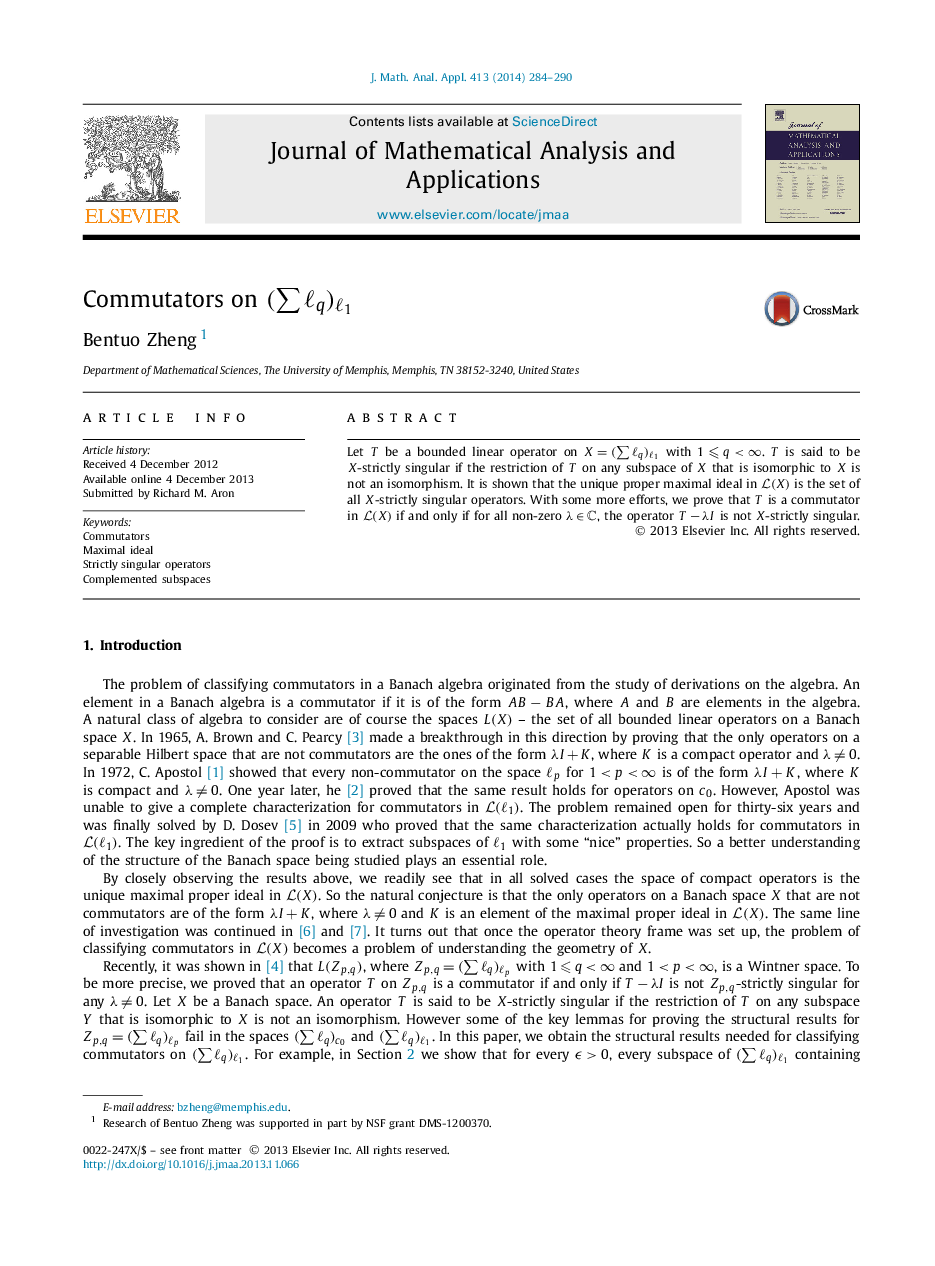| Article ID | Journal | Published Year | Pages | File Type |
|---|---|---|---|---|
| 4615835 | Journal of Mathematical Analysis and Applications | 2014 | 7 Pages |
Abstract
Let T be a bounded linear operator on X=(∑ℓq)ℓ1X=(∑ℓq)ℓ1 with 1⩽q<∞1⩽q<∞. T is said to be X-strictly singular if the restriction of T on any subspace of X that is isomorphic to X is not an isomorphism. It is shown that the unique proper maximal ideal in L(X)L(X) is the set of all X-strictly singular operators. With some more efforts, we prove that T is a commutator in L(X)L(X) if and only if for all non-zero λ∈Cλ∈C, the operator T−λIT−λI is not X-strictly singular.
Related Topics
Physical Sciences and Engineering
Mathematics
Analysis
Authors
Bentuo Zheng,
